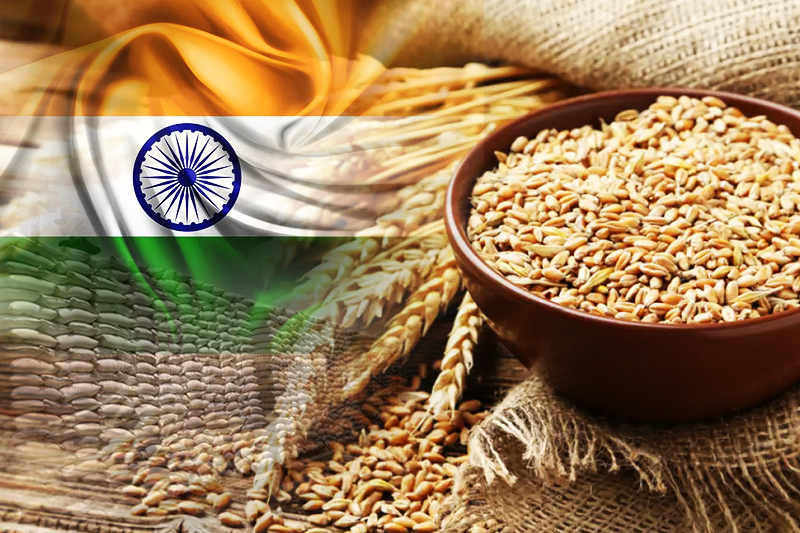High temperatures in February won’t adversely affect wheat, India claims

Union Agriculture Minister Narendra Singh Tomar said on Tuesday that no adverse effect has been seen on the wheat crop due to high temperatures, and it is too early to predict the likely impact.
Harvesting has begun in some states such as Madhya Pradesh, but Tomar said that weather-related challenges are always present in agriculture.
“Lekin main samjhta hoon ki abhi koi aisi stithi nahi hai. Koi prabhav pada hai, aisa kahna jaldbazi hogi (But I think, there is no such situation as of now. It will be too early to say that there has been any impact),” the minister said.
Per an Economics Times report, this is due to latent moisture in the soil from last year’s rains that have improved the water table, farmers and traders say.
He spoke to reporters at an event organised by the Plant-Based Food Industry Association (PBFIA), where he also emphasised the importance of increasing private investment in agriculture and introducing new technologies to enhance farmers’ income.
The government formed a committee on February 20 to monitor any unusual rise in temperature and its impact on the wheat crop, as some parts of the country experienced above-normal temperatures.
Noting that 93 percent of India’s estimated rice produce has been procured, Food Secretary Sanjeev Chopra told CNBC-TV18 that no adverse weather conditions have been reported by the IMD for the next 8 to 10 days which is a crucial period for wheat.
India’s wheat production decreased to 107.74 million tonnes in the 2021-22 crop year from 109.59 million tonnes in the previous year due to heatwaves in some key producing states.
The government has estimated wheat production to reach a record 112.18 million tonnes in the 2022-23 crop year.
In May last year, the Centre banned wheat exports to control rising prices, after a slight fall in domestic production and a sharp decline in the FCI’s procurement for the central pool.
While addressing the conference, Tomar said plant-based foods, along with meeting the needs of the times, will create job opportunities and boost agriculture.
The PBFIA Executive Director Sanjay Sethi stated that India has the potential to become a significant supplier of plant-based proteins worldwide. The industry is currently worth Rs 2000 crore, with soybean-based products accounting for the majority of the market share.
“The plant-based dairy industry needs support on the nomenclature front to expand the market and enhance consumer awareness,” Sethi said.
Read also
Black Sea Grains and Oilseeds: Export Flows and the Future Potential. Outlook for ...
Wheat export prices rise in Ukraine due to limited supply
India’s Sunflower Oil Imports Up 17.8% in June – SEA
About 46% of Ukrainian flour was exported to the EU in the 2024/25 season
US soybean crops show significant improvement
Write to us
Our manager will contact you soon



